What Is the Meaning Behind the Term ‘The Brat Pack’?
Emilio Estevez once said that the term “Brat Pack” has ruined his life and that the nickname will probably be placed on his tombstone. In the 1980s, some of the most successful celebrities of the decade were labeled as members of “The Brat Pack,” which they are still referred to as today.
But what is the origin story behind the seemingly innocent nickname? And why did it cause such a massive stir in the ‘80s?
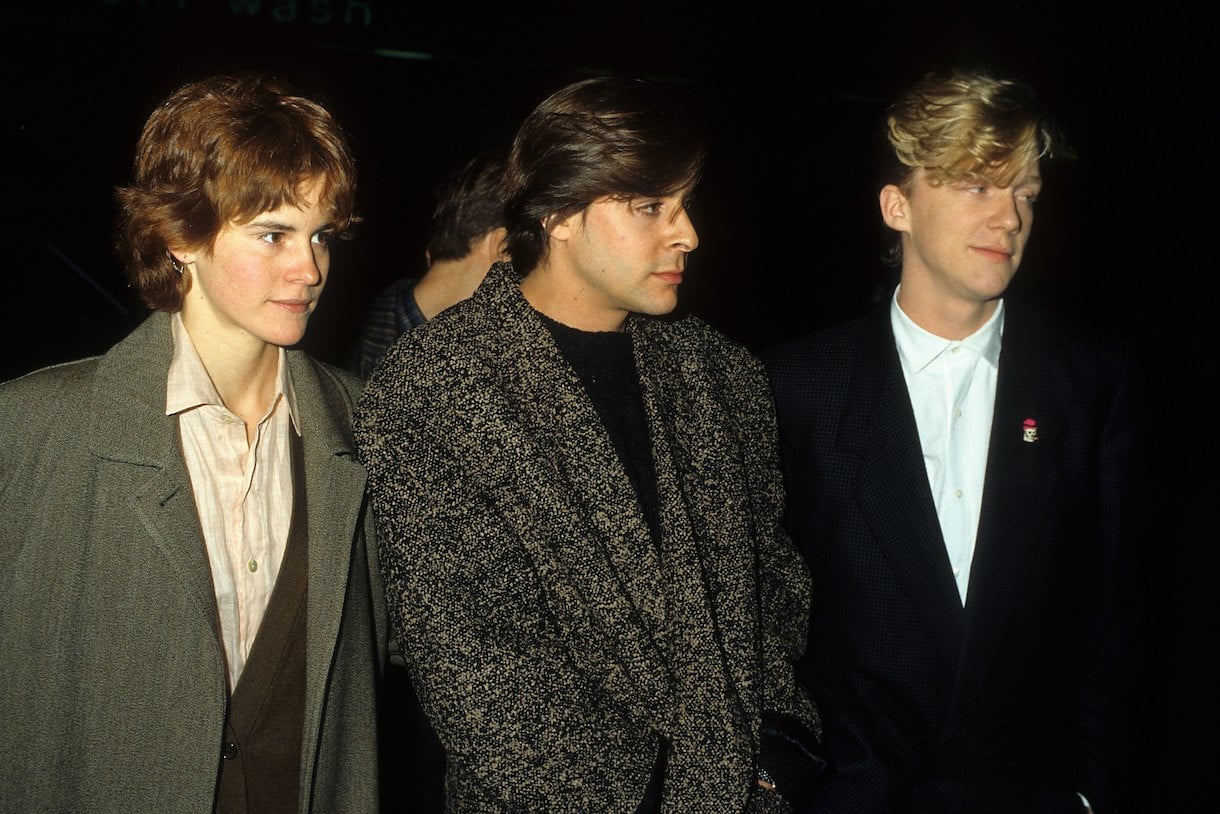
Who are the members of The Brat Pack?
Teen movies were all the rage in the ‘80s. With directors like John Hughes and Joel Schumacher, adolescent voices were finally heard in a decade where young adults were often overlooked and misunderstood. In a lot of ways, these movies saved a whole generation of young people.
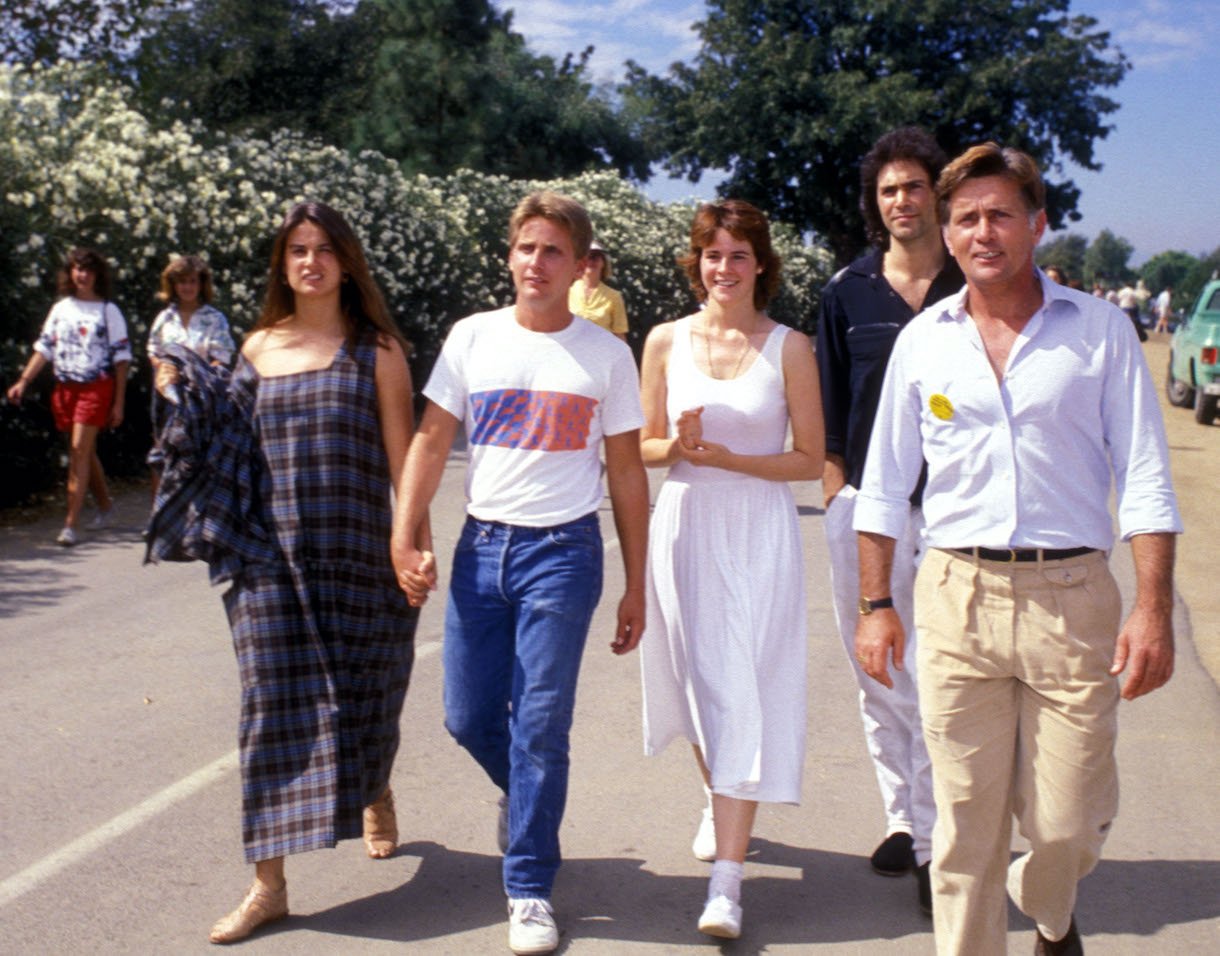
But who are the essential members of the pack?
The Brat Pack includes:
Molly Ringwald, Rob Lowe, Emilio Estevez, Ally Sheedy, Judd Nelson, Demi Moore, and Andrew McCarthy. At the time, these actors were known for their roles in The Breakfast Club and St. Elmo’s Fire.
Why are they called The Brat Pack?
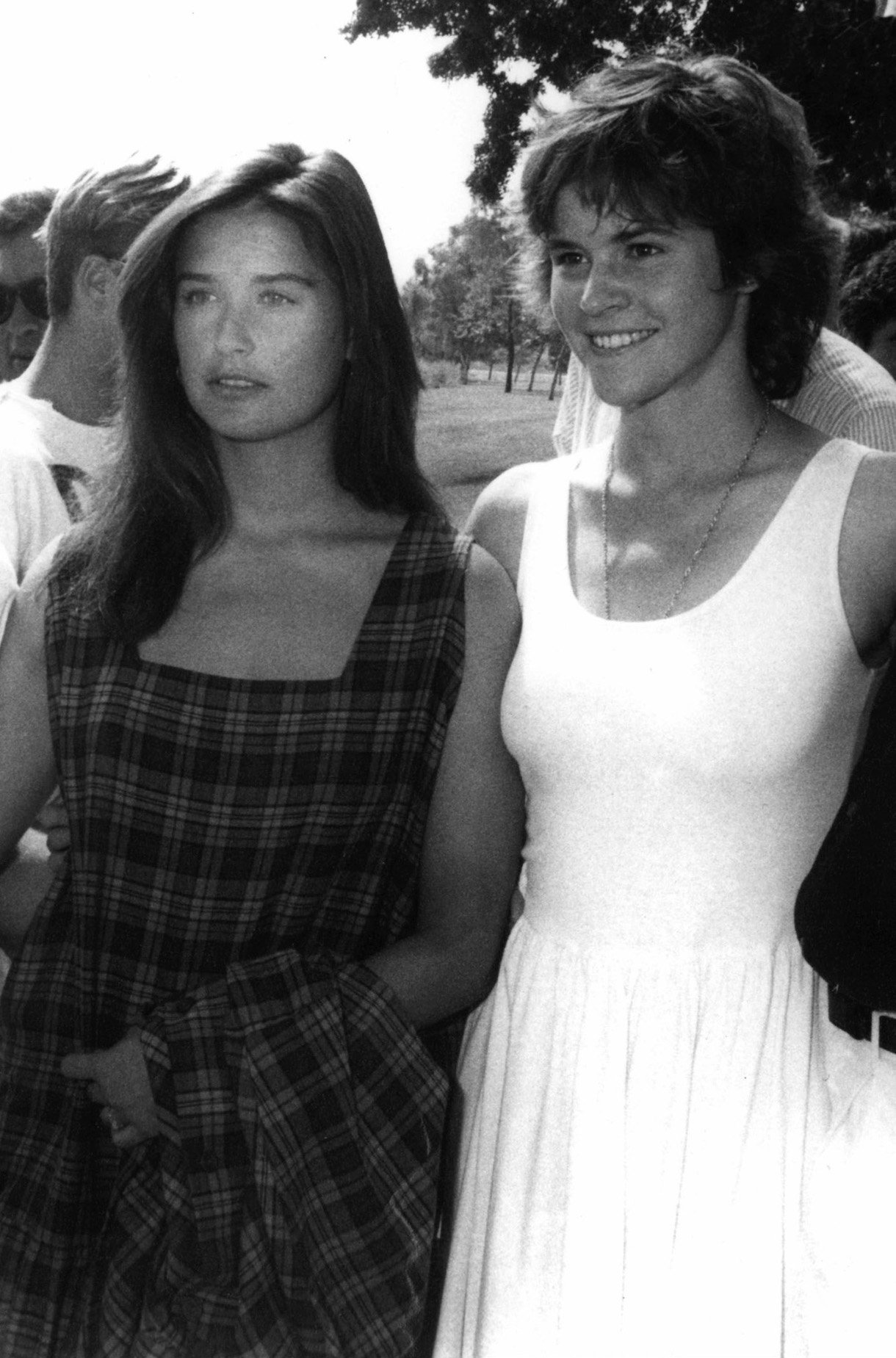
The seemingly innocent nickname for the ‘80s celebs has a surprisingly dramatic origin story. The term was coined by a journalist named David Blum of The New York Times in 1985. He says that he came up with the name as a nod to The Rat Pack. (The Rat Pack referred to the monicker belonging to Frank Sinatra, Sammy Davis Jr, and Dean Martin.)
But really, there is a darker meaning behind the name.
In The New York Times piece where the nickname is first coined, Blum portrays the members of the pack as spoiled, entitled, and above all else, bratty. The way the journalist depicts them, it seems as though all they care about is partying and picking up girls, instead of “improving their craft.”
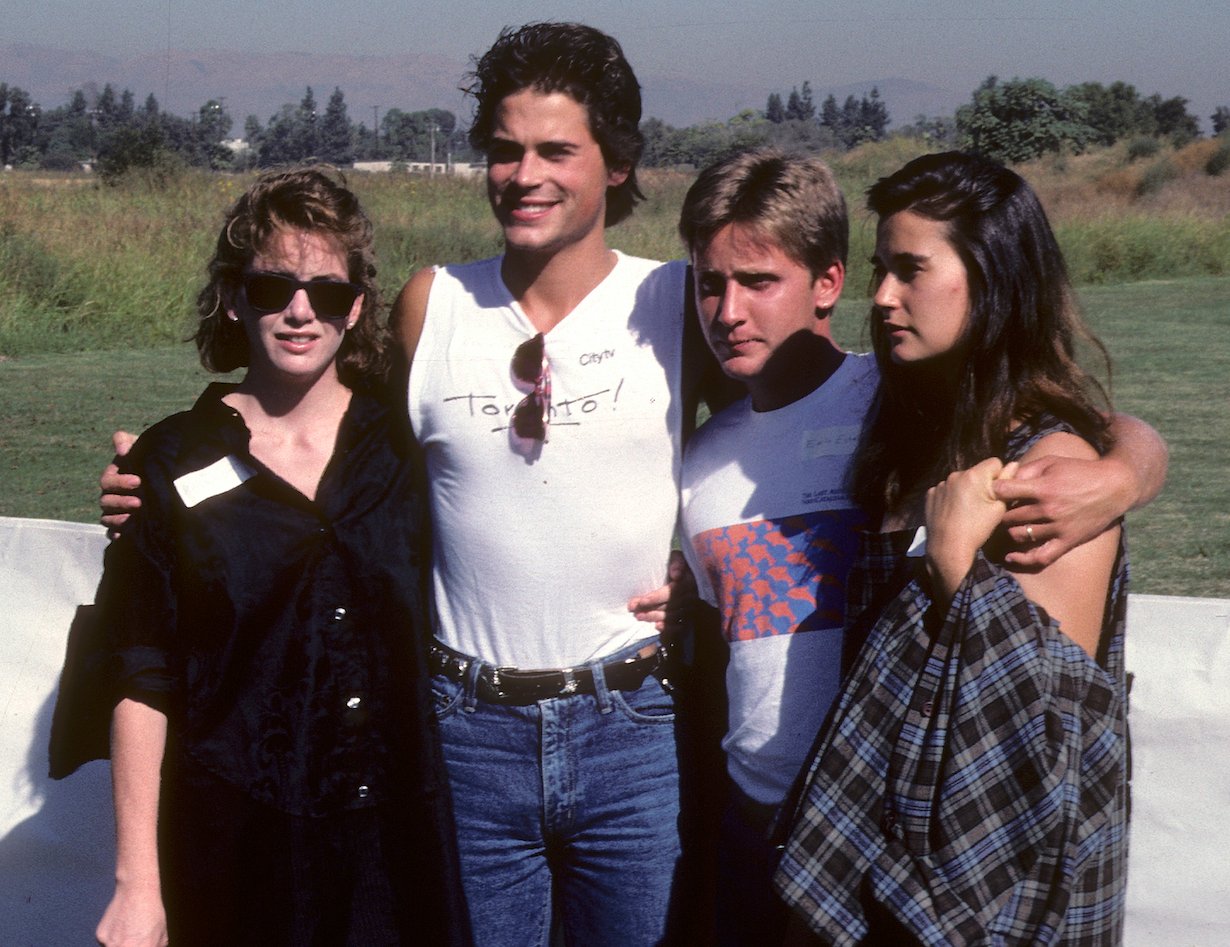
He paints the group in a negative light, acting as though they are above everyone else. Yet, according to the actors in the pack, this couldn’t be further from the truth.
And as The Brat Pack memoir written by Susannah Gora reveals, the group members despised the nickname.
Rob Lowe told Phil Donahue that Blum “was jealous of their fame and their wealth and success.”
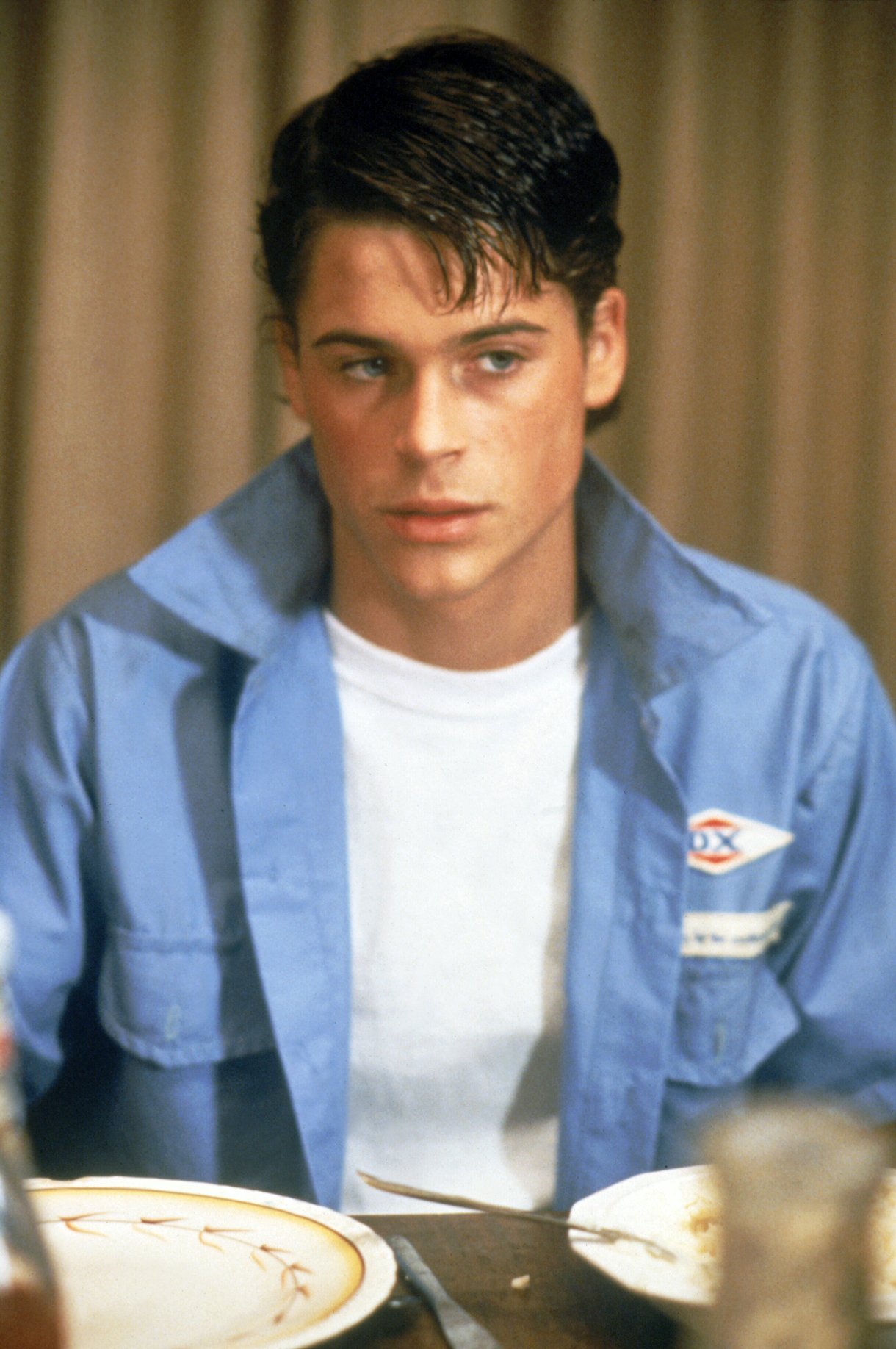
“Yeah, I was,” Blum admits, according to the memoir. “I wasn’t a loser, but I was willing to cop to the fact that I, like everybody else in America who isn’t a Hollywood movie star, thinks that being a Hollywood movie star is a pretty cool thing. But if I were a Hollywood movie star,” says Blum, “I would probably spend more time focusing on my craft than going to the Hard Rock Cafe and picking up girls.”
Emilio Estevez said the term ‘The Brat Pack’ ruined his life
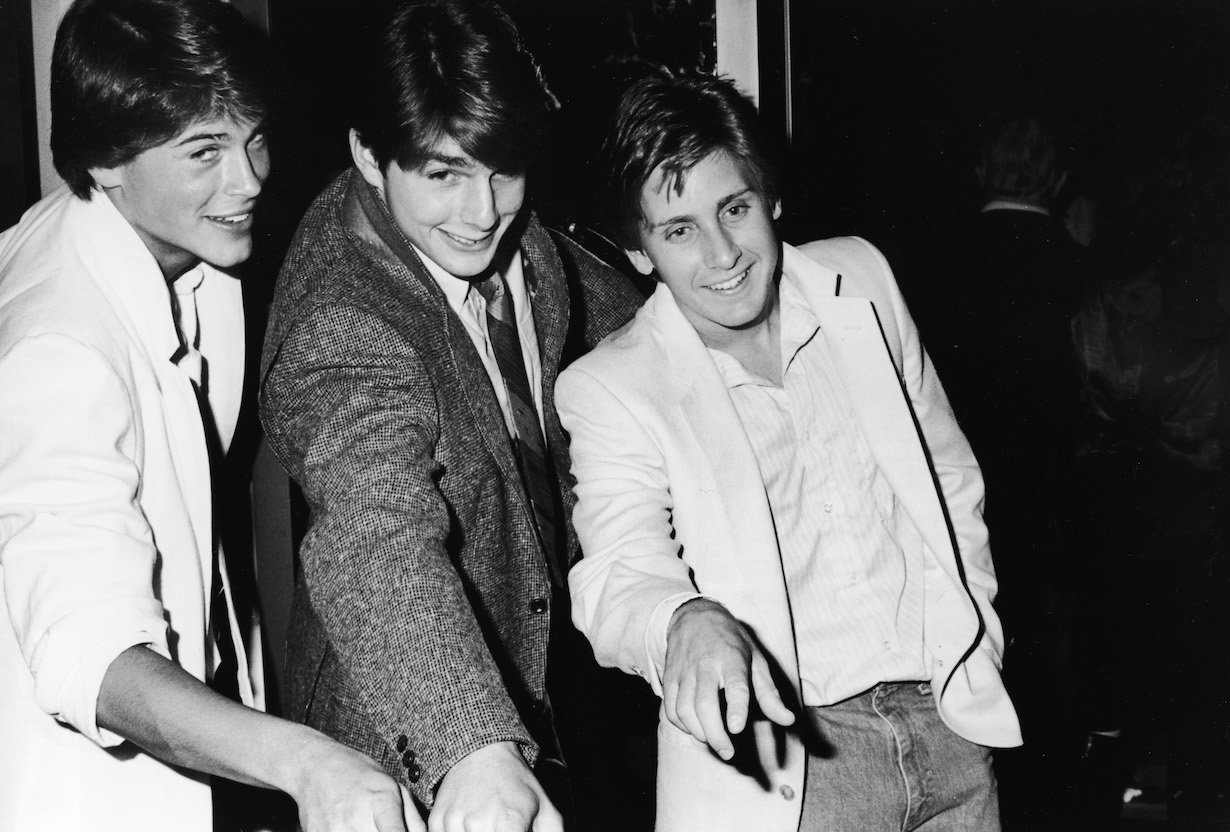
Estevez, who had invited Blum out to The Hard Rock Cafe to do a piece on the actors, had the strongest reaction to The New York Times article. He called Blum up and told him, “You ruined my life.”
Blum said, “Emilio called me the day the piece came out, and he said, ‘How could you do this to me? My friends hate me now and won’t speak to me. You completely betrayed me. I thought we were friends,'” he cried. “I thought you liked me.”
“It’s unfair,” John Hughes revealed in the memoir. “The phrase,” said Hughes, “suggests unruly, arrogant young people, and that description isn’t true of these people. And the label has been stuck on people who never even spoke to the reporter who coined it. It’s harmful to people’s careers.”


